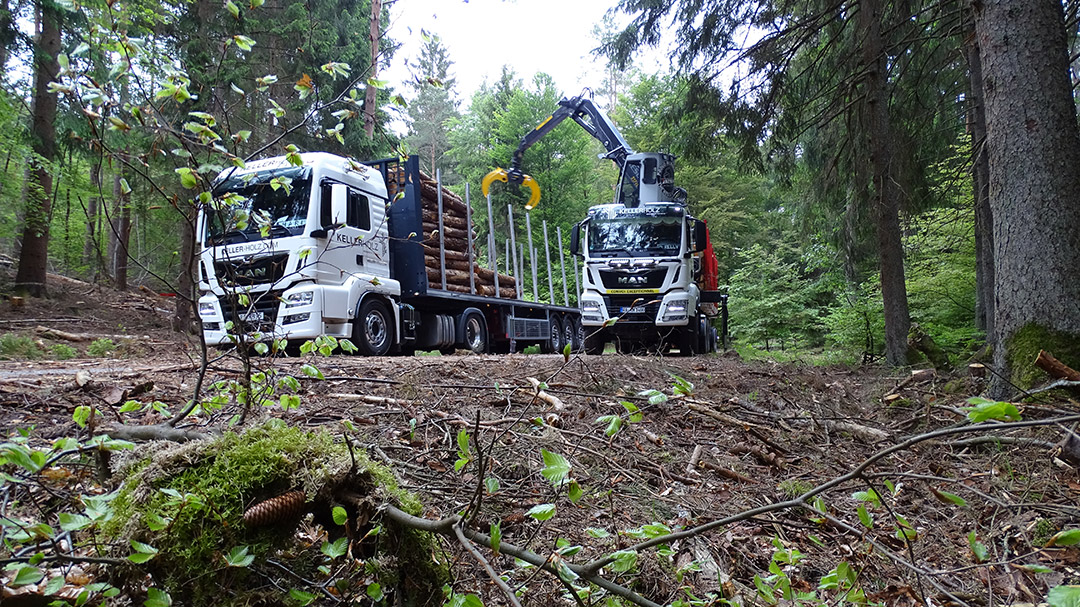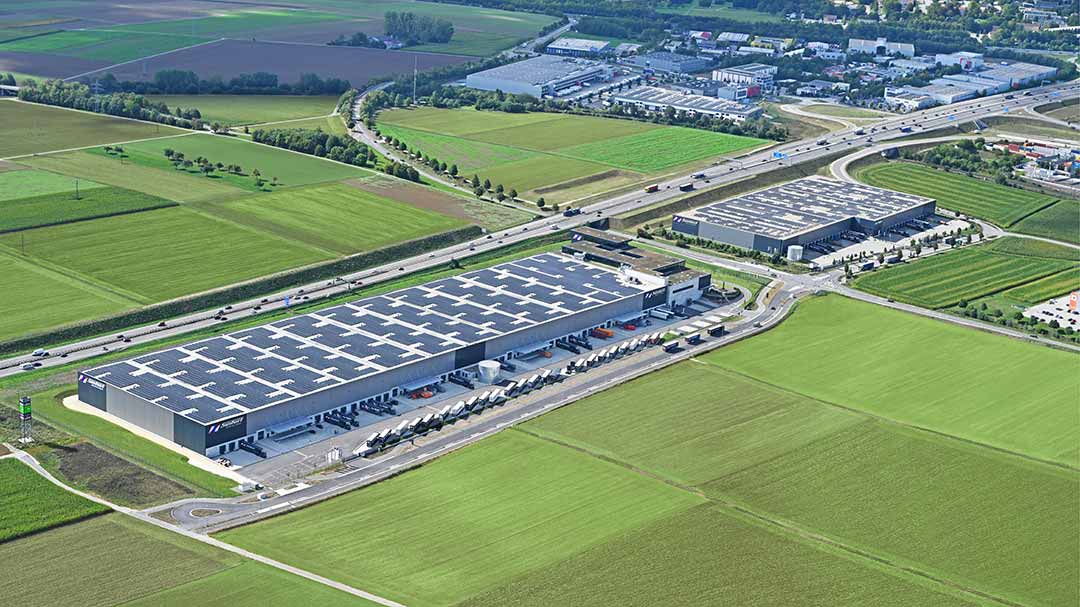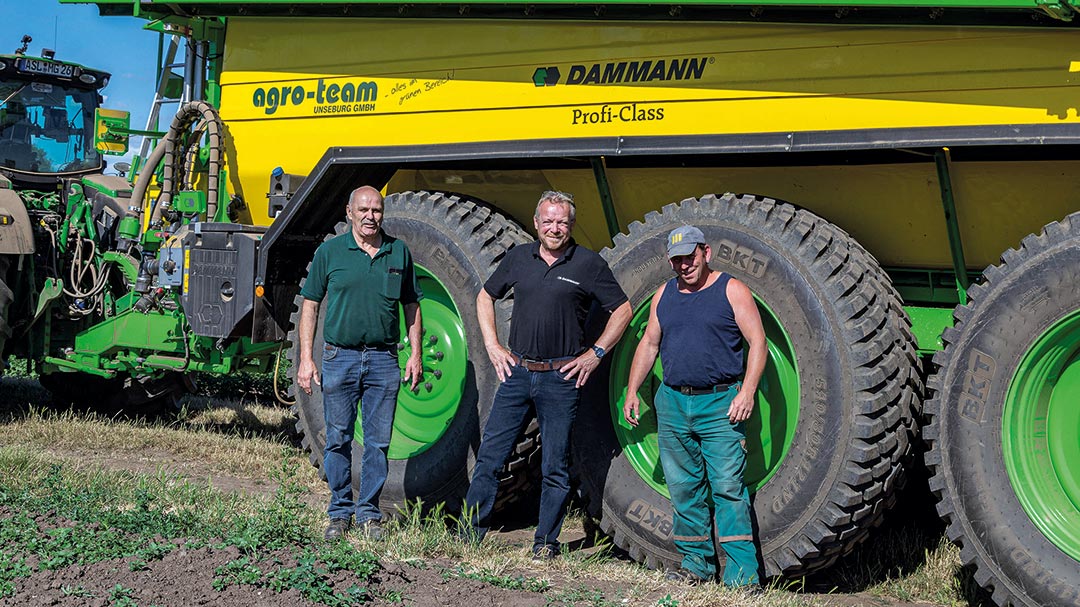Text: Juliane Gringer
Photos: Kellerholz
The KELLERHOLZ company processes 140,000 cubic metres of wood in a space of just 1.8 hectares every year. The materials are delivered just in time, thanks to sophisticated logistics. The iGurt from BPW not only helps with load securing, it also saves time.
Wood from regional forests
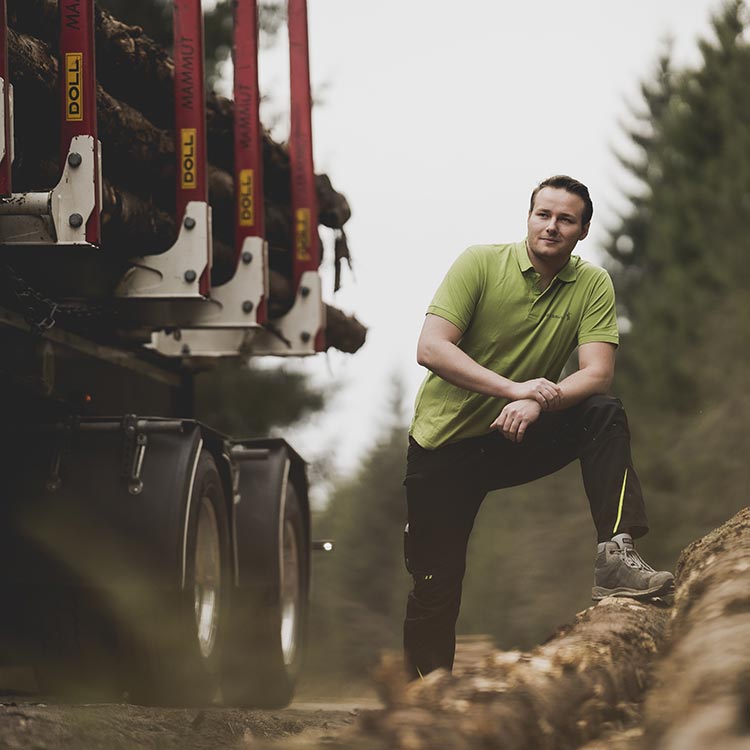
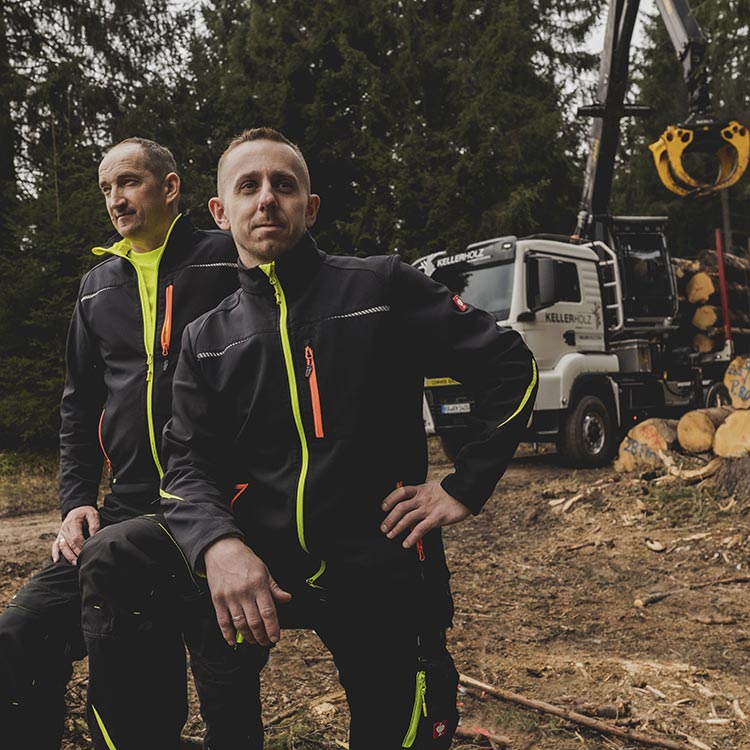
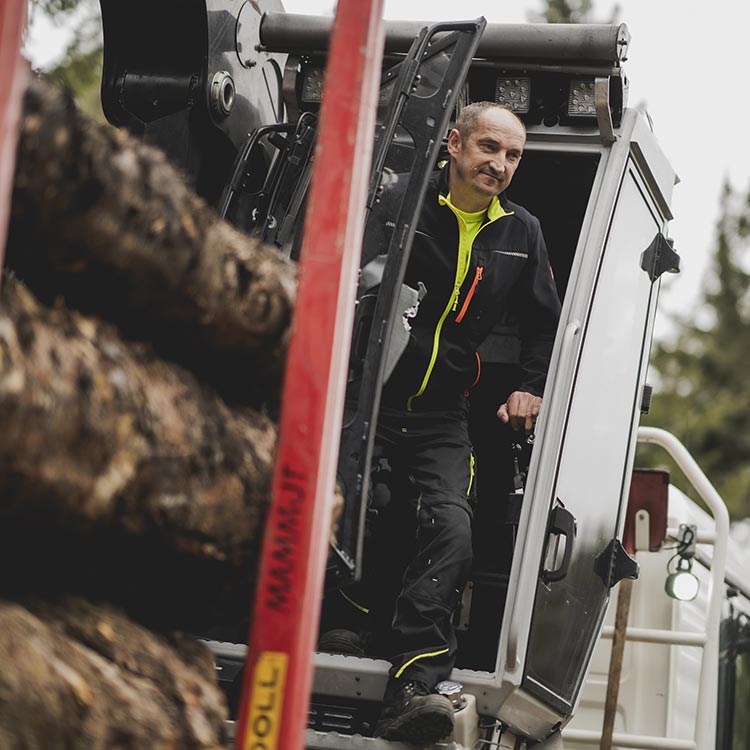
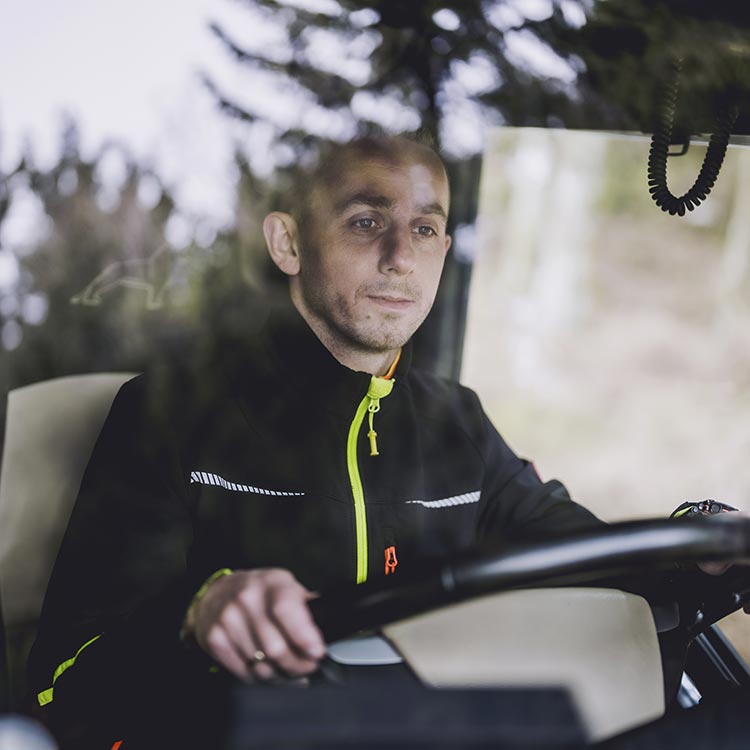
Load securing for wood transport

»The Swiss border guards always wave us through, because they know that we work conscientiously. That also means that the load is correctly secured via the preload indicators, which the iGurt records«
Benedikt Jakesch, Head of Logistics at KELLERHOLZ
However, he does not only consider the iGurt to be a reliable companion in day-to-day business in the transport industry, but also as a tool which shows the world that the company has its finger on the pulse: “We always want to be a step ahead and future-orientated. The iGurt is an excellent addition to the KELLERHOLZ portfolio in that respect.”
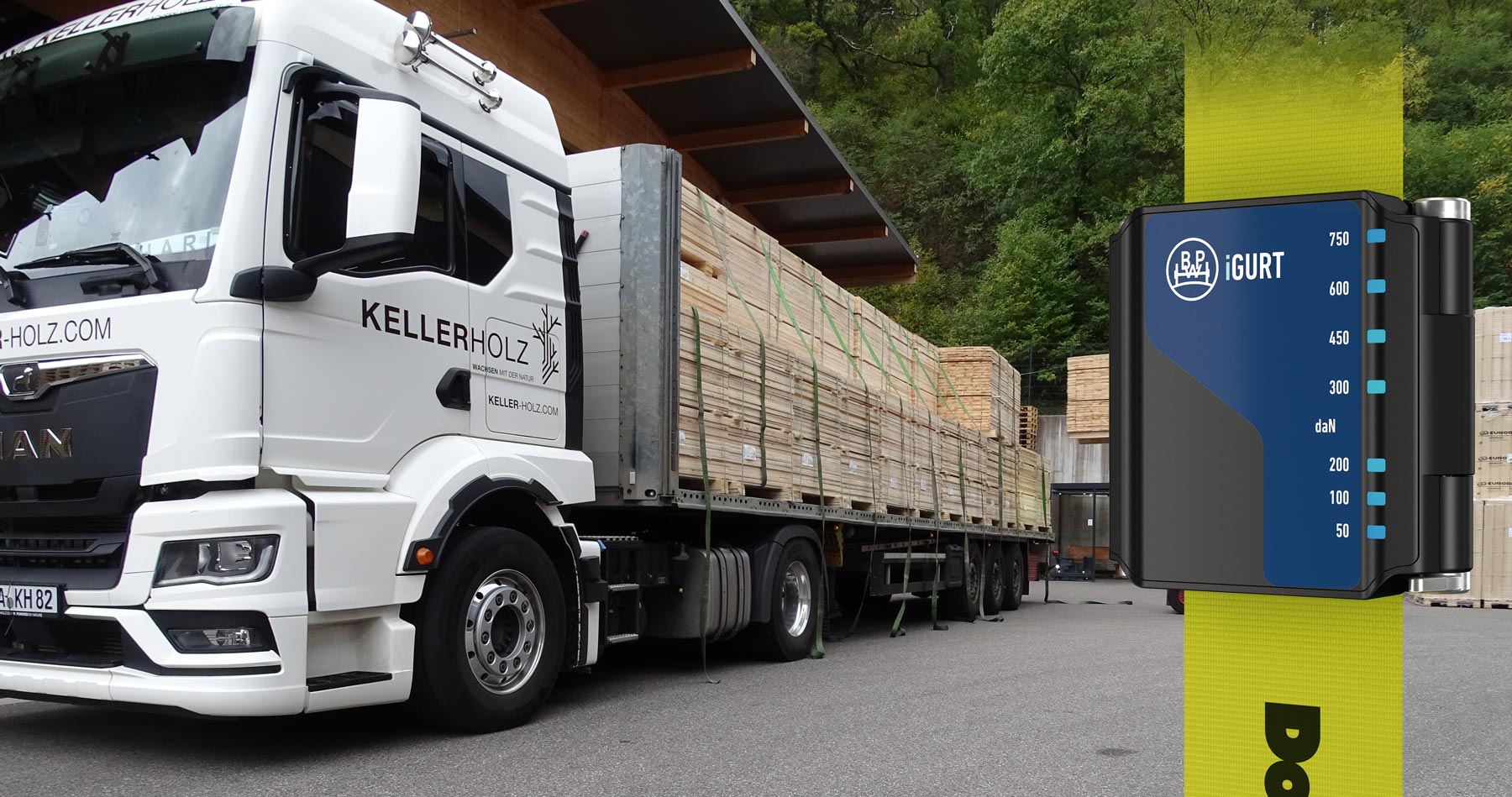
Wood as a precious raw material
Wood is a popular raw material – and it is becoming increasingly rare: climate change is making the forests very dry. This is relevant to KELLERHOLZ, even though the company tends to use more C and D qualities for cutting its Euro pallets. “Nonetheless, we face the challenge that we have to rely on certain types of wood,” explains Jakesch. “A sawmill cannot simply say, ‘if we run out of spruce trees, we’ll just use beech.'” Of course, it’s also an emotional issue: “We are out in the forests every day and we see how they are suffering due to the changing circumstances. That affects us of course”
»We are out in the forests every day and we see how they are suffering due to the changing circumstances. That affects us of course.«
Benedikt Jakesch, Head of Logistics at KELLERHOLZ
As a company, KELLERHOLZ aims to promote climate protection by making residual wood which is created during processing available as biomass. “It can be used to decarbonise heating technology and save gas and diesel burners.” Furthermore, KELLERHOLZ itself only travels short distances to customers. “If we use our own fleet, the journeys are defined as factory transport and we are not allowed to take goods from third parties. But we try to prevent empty running through smart connections in our journeys to and from the customer.” Jakesch wants more transparency and reconsideration: “Lot’s of things are still done in the transport sector because that’s the way they have always been done. It’s about time that we start to rethink things and bid farewell to old habits.”

